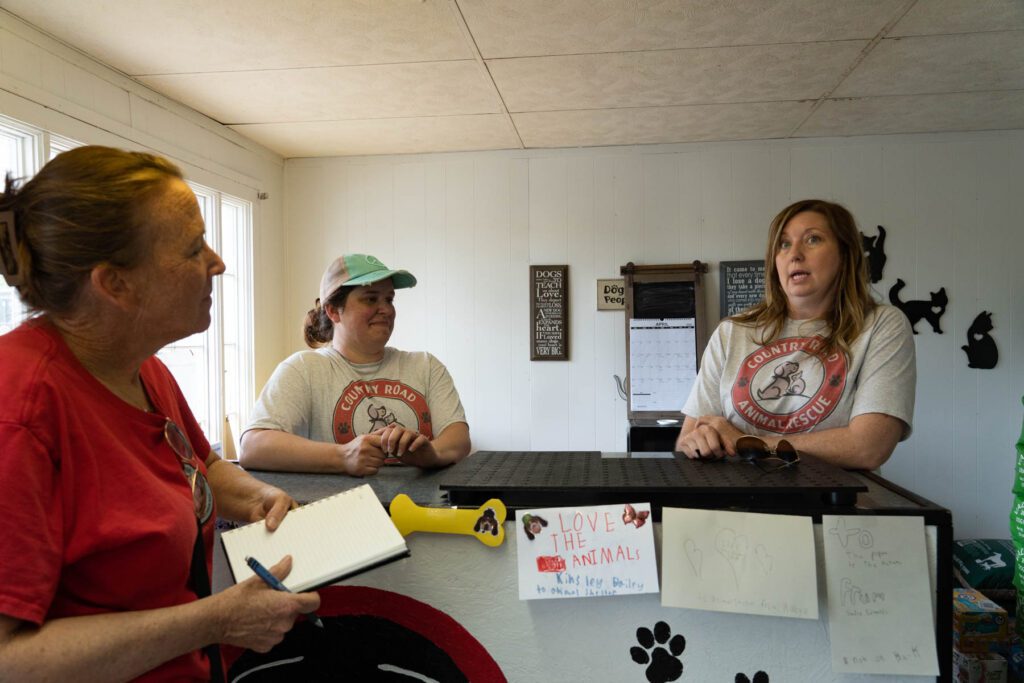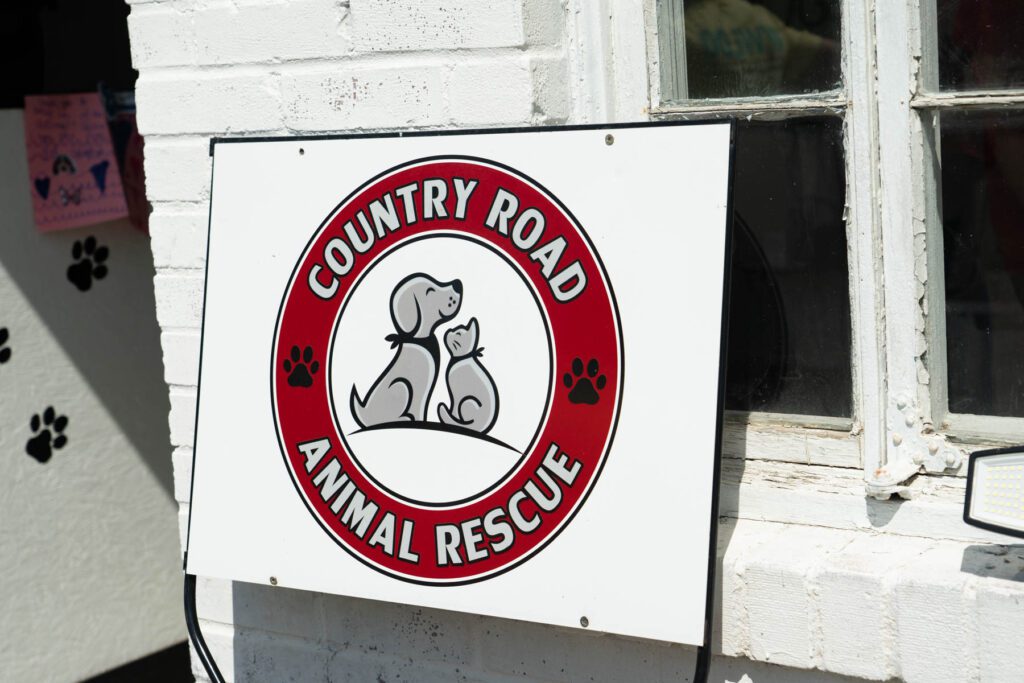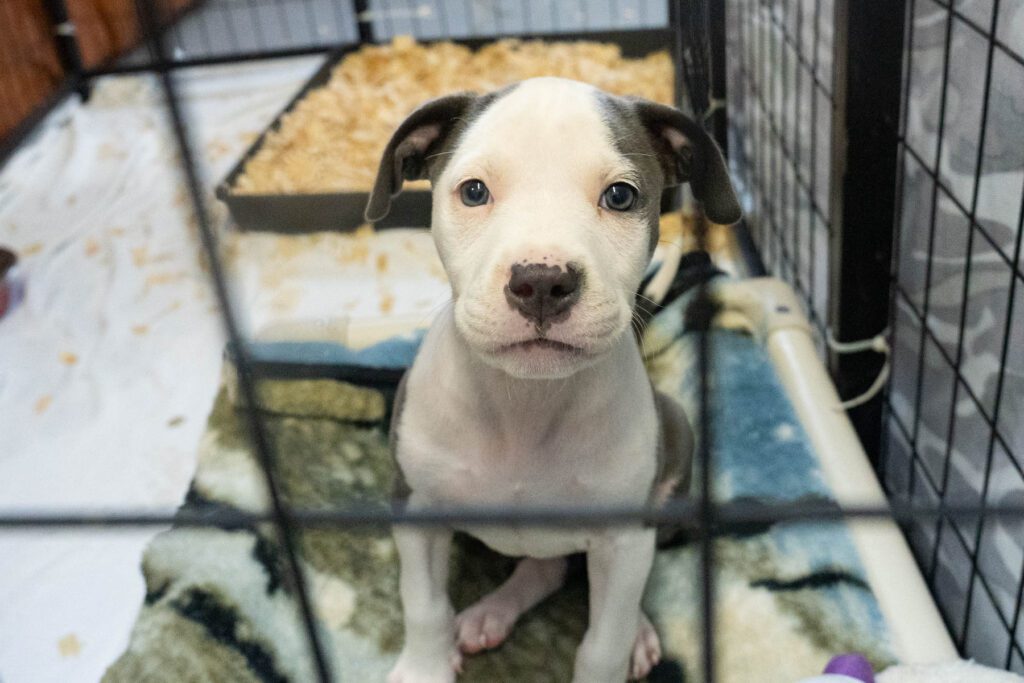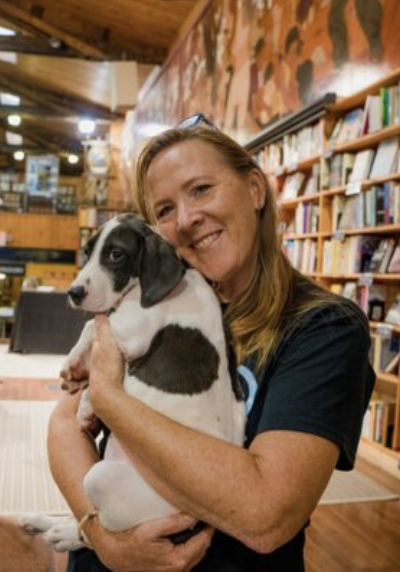It’s a familiar story. A rescue comprised of remarkable women doing the job the county will not do. We’ve seen it all too often throughout the south.

And every time, I leave with the same two thoughts –
First, they are enabling the county to shirk their responsibility.
And second, thank God they are here rescuing.
Country Road Animal Rescue began in 2014, but Amanda and Angel had been rescuing long before that. The need in Wayne County, Tennessee is enormous. It’s the second largest county in Tennessee, but one of the smallest populations. Sitting just above the Tennessee line where Alabama and Mississippi touch it, Wayne County has no animal shelter or animal control services.

Amanda and Angel named their rescue Country Road because they spent countless hours driving down country roads to find dogs that were dumped, abandoned, and desperate.
Last year, Amanda purchased a former auto repair shop on one of the main roads in town and the rescue converted it into a shelter. Until then, they had been operating out of a building at Amanda’s rural property.
Being in town has been good for the rescue – the increase in visibility has led to more adoptions and more volunteers. You really can’t miss the shop that sits close to the road with kennels right out front where they place the dogs while they are cleaning inside.




Inside, there are large kennels mostly filled with puppies because Country Road rescues about 85% puppies. The dogs and puppies come to them often through owner surrenders, but they also accept some dogs from the city of Waynesboro police officers (and charge $150 per dog). There is no animal control officer or shelter in the city either, which leaves me to wonder – what would happen to those dogs if there was no Country Road Animal Rescue?





Country Road is the only dog rescue operating in the county. They move most of their dogs out through rescue, but do some local adoptions to carefully vetted homes. There are a lot of smart policies, like working to engage with their community. The week we visited they had just hosted a troop of girl scouts who earned their pet badge and learned about the shelter’s work (and one might be adopting the puppy I fell in love with while visiting!).
Their presence right on main street in the center of town, keeps them at the forefront of people’s minds. Many shelters are hidden on public lands reserved for utilities or in areas of poor land value. When people drive by the shelter on a regular basis, it’s much more likely to come to mind when making donations or considering adding a pet to the family.
Amanda, Angel, and Leanna, another leader in the rescue, handle the bulk of the work, along with a handful of other volunteers they do all the cleaning, care, networking of dogs to rescue, adoptions, and fundraising. Every single one of them has a full-time job.



I asked Amanda what happens now – where do they go from here? Her biggest need at the moment is a van for transport. They all use their personal vehicles (none of which are large) to get dogs to vet appointments (three different vets scattered throughout the county) or to meet rescues.
But long term? She’d like to be able to step away. She hopes younger people will come along and take over. She has no illusions that the city or county will take responsibility for animal control.
And this is the problem for so much of the rural south who take advantage of people like Amanda and Angel and Leanna. Because the rescue is handling their unwanted animals, the county doesn’t have to. The rescue not only does all the work, they even pay for it.
A small group of citizens is paying for animal control in Wayne County with their money, time, and so much of their hearts. And sadly, until a tragedy – like a stray dog mauling a child or a rabid dog biting someone or some other nightmare occurs, the county can continue to think this is not their problem or responsibility.



As I said at the outset, I’m so grateful there are rescues like Country Road, but their very existence is what makes it possible for the problem to persist.
This model exists in municipalities all over the south. We’ve been doing this long enough to also see what happens when the rescue system goes awry – someone dies or gets sick or develops mental health issues. There are very few, if any, regulations on rescues in the south.

Rhonda the director of Brindlee Mountain Animal Rescue in Alabama, told me that there’s a fine line between rescue and hoarding. Those words have proved sadly true time and again as would-be rescuers become overwhelmed and there are no regulations or supports in place.
Lucky for Wayne County, Amanda, Angel, and Leanna have excellent protocols in place for the health and safety of their animals. They are transparent with their finances and with the shelter now in a very public place, it’s not easy for the city or county to ignore their work.
And they are doing an incredible job saving nearly 600 dogs (and countless cats) a year.



Let’s just hope the county’s luck holds.
If you’d like to support the incredible work of Country Road Animal Shelter, shop their Amazon wishlist: https://www.amazon.com/hz/wishlist/ls/R9A5CE2P76B4
Or chewy wishlist: https://www.chewy.com/g/country-road-animal-rescue_b64737362
And visit their website to learn more and find other ways to support them: https://countryroadanimalrescue.webs.com/get-involved
You can also follow and support their work on Facebook.
The current model of private rescues doing the county’s job is not sustainable. One way or another, this county will eventually have to face that reality. We need to talk about this truth – and not just in rural Tennessee. On our most recent shelter tour, we saw the same scenario in Georgia and Mississippi. On previous trips we’ve seen it in Alabama, Arkansas, Kentucky, West Virginia, and Florida. It’s happening all over the south.
Our mission is to raise awareness and resources for homeless dogs and the heroes, like Amanda, Angel, and Leanna, who fight to save them. You can help us most by telling someone. Awareness brings change.

Until each one has a home,
Cara
If you want to learn more, be sure to subscribe to this blog. And help us spread the word by sharing this post with others. Visit our website to learn more.
You can also help raise awareness by following/commenting/sharing us on Facebook, Instagram, YouTube, Tik Tok, and the Who Will Let the Dogs Out podcast.

Learn more about what is happening in our southern shelters and rescues in the book, One Hundred Dogs & Counting: One Woman, Ten Thousand Miles, and a Journey Into the Heart of Shelters and Rescues (Pegasus Books, 2020). It’s the story of a challenging foster dog who inspired me to travel south to find out where all the dogs were coming from. It tells the story of how Who Will Let the Dogs Out began. Find it anywhere books are sold. A portion of the proceeds of every book sold go to help unwanted animals in the south.
For more information on any of our projects, to talk about rescue in your neck of the woods, or become a WWLDO volunteer, please email whowillletthedogsout@gmail.com or carasueachterberg@gmail.com.
And for links to everything WWLDO check out our Linktree.



Leave a Comment
Sign up for our newsletter
Sign up to have our latest news, grant updates, shelter visits, and more delivered to your inbox.
Share this:
Like this: